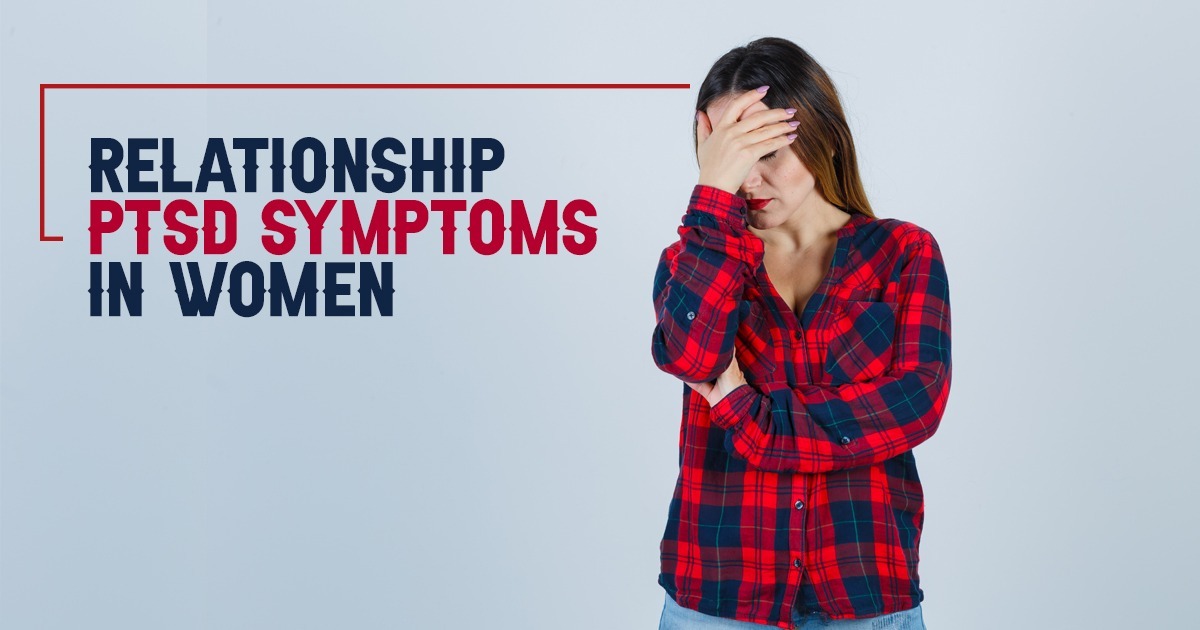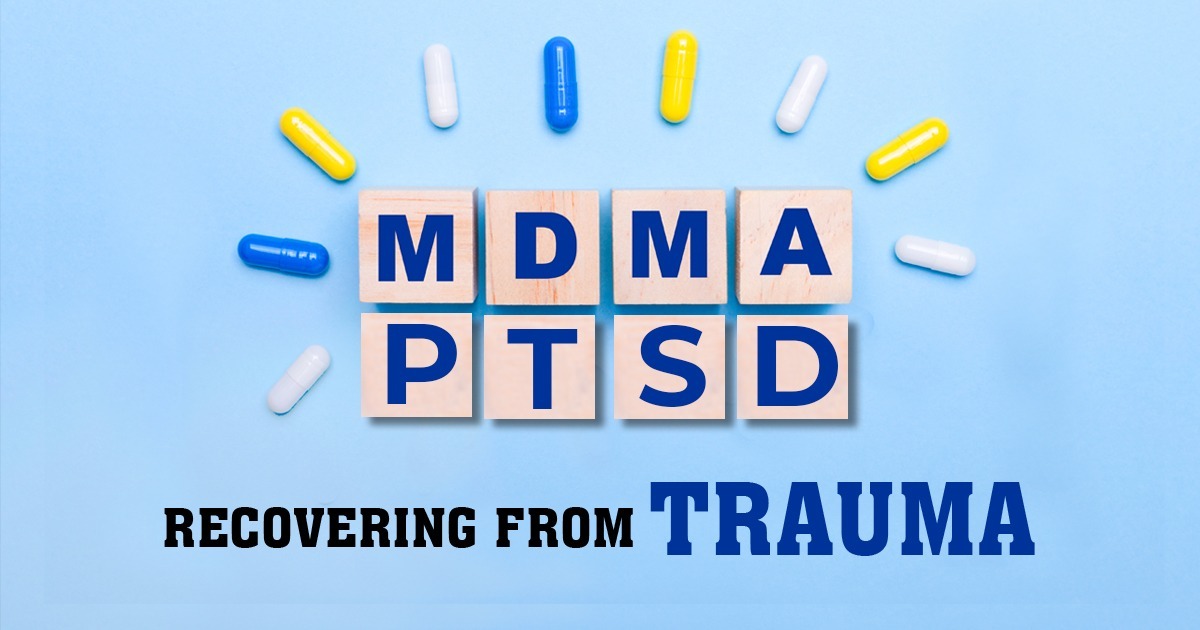
The term post-traumatic stress disorder or PTSD is one you may be familiar with in a general sense without understanding its implications.
For example, we often think only military veterans can have PTSD. In reality, anyone can experience the symptoms.
- Traumatic events can be one-offs like a terrorist attack, sexual assault, or natural disaster.
- Trauma can also occur over time, as is the case with childhood abuse.
- Another scenario where PTSD may occur is following a toxic relationship. Relationship PTSD can make it challenging to form genuine bonds in the future. Even if your past relationships didn’t involve domestic violence or physical assault, relationship PTSD could still occur.
Relationships that are distressing and cause you pain can have long-lasting effects on your mental and emotional well-being. These stressful events and painful memories can contribute to a wide range of mood symptoms.
When you trust and love someone, and they criticize you or put you down or try to control and manipulate you, it’s not just painful at the moment it’s occurring. When you experience toxic or emotionally abusive relationships, it can influence your feelings of safety, self-worth, and self-confidence.
Once you end a toxic relationship, you may feel like its effects still trap you. You may experience constant reminders of the relationship, and that’s because you can’t just walk away from trauma.
What Is Relationship PTSD?
Generally, posttraumatic stress disorder can lead to lingering feelings of distress and fear after an event. Symptoms include flashbacks and avoidance and other similar symptoms that persist after the traumatic event ends.
- When you experience an abusive relationship, you may end the abuse, but not the effects.
- Mental health experts describe this situation as post-traumatic relationship syndrome or PTRS. A relatively new term, PTRS, occurs following the experience of trauma in an intimate relationship.
- PTRS includes the arousal and intrusive signs of PTSD, but it doesn’t have the avoidance symptoms that are part of a PTSD diagnosis.
- PTRS is also described as an anxiety disorder occurring after the experience of abuse, physically, emotionally, or psychologically within the context of an intimate partner relationship.
When someone has PTSD, they might try to block out or avoid memories. The big difference with PTRS is that you continue to revisit and experience memories over and over again. With traumatization, it’s challenging to move forward and build healthy relationships with partners in the future.
When you have PTRS, you’re fully aware of everything that happened since you can’t avoid memories and reminders of the relationship. You may try to deal with your emotional response since you can’t numb the distress.
You can experience PTRS without having any threat of physical harm. Symptoms can include horror, rage, and fear.
Causes of PTRS
Direct causes of post-traumatic relationship stress can include physical abuse, sexual abuse, including sexual coercion, or emotional abuse. Emotional abuse includes manipulation, gaslighting, and control.
Indicators of a toxic dynamic can cause PTRS, such as silent treatment or ignoring you. When a partner is unfaithful, this can also lead to PTRS. Cheating is known as betrayal trauma, although it’s not on its abuse.

What Are the Long-Term Effects of Relationship PTSD?
When you don’t receive help, relationship PTSD tends to be progressive, getting worse over time.
- You may feel isolated because you feel you cannot share what you went through with other people.
- You may have an ongoing fear of more trauma, making it difficult to relax or practice self-care.
- When you’re constantly feeling stressed and aren’t engaging in self-care, you may experience burnout and physical symptoms.
- After you experience PTSD from a romantic relationship, you might feel unsafe in the world in general, and you can’t feel safe with anyone around you.
- Some people also blame themselves for what they went through, leading to feelings of unworthiness and guilt.
- You could avoid relationships altogether, including ones that are healthy and nurturing.
PTSD Symptoms in Women
PTSD symptoms in women are similar to PTRS symptoms, with a few exceptions. In general, PTSD symptoms in women can include:
- Avoidance of reminders of the trauma. Avoidance in PTSD tends to be more common in women than men. Avoidance includes emotional avoidance and behavioral avoidance. Behavioral avoidance means avoiding the people, places, things, or other environmental triggers that remind you of trauma. In women, avoidance is one of the most common PTSD symptoms.
- Hyperarousal is a term that refers to having a heightened state of anxiety. Hyperarousal symptoms include excessive startle reflex, problems with concentration, irritability, panic attacks, and hypervigilance.
- Re-experiencing the trauma is a common symptom in trauma survivors. You might have intrusive, unwanted thoughts and memories related to the trauma, nightmares, or flashbacks. Women tend to experience this more than men.
- Emotional numbness is the symptom of PTSD that tends to be much less common in PTRS. Emotional numbness means you lack emotion, lose interest, and feel detached from other people. You may also experience social isolation as a result.
Why Do Women Experience Symptoms of PTSD Differently Than Men?
One theory why women might experience PTSD differently than men is that women are more likely to internalize things, meaning more internalizing disorders like depression and anxiety.
On the other hand, men are more likely to develop externalizing disorders, like substance abuse or have angry outbursts.
Many women may wait longer to get treatment or not get it at all.
Relationship PTSD Symptoms
While there is some overlap, some of the most common signs of PTSD stemming from a relationship include:
- Constantly feeling on-edge: We talked about this above, but in the particular context of a relationship, you may constantly worry about a future romantic partner ridiculing you or starting a fight with you. You may be overly aware of triggers that could lead to situations similar to your past trauma.
- Overreaction: If you experienced past trauma in a relationship or always felt like you were walking on eggshells, that could make you hypercritical of your current partner. If you notice yourself overreacting to little or unimportant things, you might reflect on why that’s happening. These can also be known as reactivity symptoms.
- Problems with communication: Following a relationship leading to trauma, you might be less willing to talk to a future partner about what you’re feeling. You may have a hard time letting your guard down or making decisions together.
- Turning off your emotions: You might not let yourself feel positive emotions after you’ve gone through a relationship filled with negative ones.
So what can you do if you notice the signs of PTSD or, more specifically, relationship PTSD in yourself?
The best option is to seek help as soon as you can. PTSD, when left untreated, can not just negatively affect current and future relationships. Untreated PTSD or PTRS can lead to complications like substance use disorders and other mental disorders.
Contact the team at Anchored Tides Recovery by calling 866-600-7709 to learn more about treatment options, such as cognitive processing therapy and exposure therapy.





























